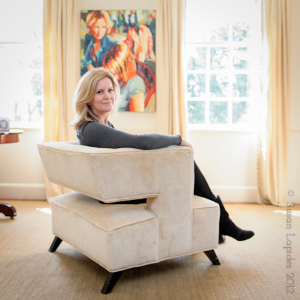
iMoneza Partner Interview: Heidi Legg from TheEditorial.com
I sat down for an interview with our newest partner TheEditorial.com. Heidi and the team at TheEditorial produce insightful interviews with the brightest thinkers the Harvard, MIT, Kendall Square corridor has to offer. I asked her about her beginnings as well as the drive to introduce a paid content model. Read the interview below and don’t forget to go to TheEditorial.com to check out some of their interviews!
Q: How long have you been operating TheEditorial.com and what initially inspired you to embark upon this blog and interview series?
While my kids were very young I was writing fiction and wrote three novels and seven screenplays. I thought I would go on a book tour or work seasonally on film sets. I’m an idealist. Eventually, reality set in. I looked around to see what beat I could cover from Cambridge, MA and build back up my journalism career. The Harvard, MIT and Kendall Square corridor is as close as you can get
 to an Italian renaissance. Everywhere I went I ran into brilliant minds doing something that was going to change the way we live and work and I thought, ‘Why are we being inundated with the Kardashians, paid product placement and politician/celebrity writers when great minds like these walk the planet?’ It was time to change the conversation and share what I was privy to.
to an Italian renaissance. Everywhere I went I ran into brilliant minds doing something that was going to change the way we live and work and I thought, ‘Why are we being inundated with the Kardashians, paid product placement and politician/celebrity writers when great minds like these walk the planet?’ It was time to change the conversation and share what I was privy to.
Q: Prior to introducing a pay-per-interview model, what did your revenue model look like?
Media is in such a flux of disruption. It was clear to me that if The New York Times could not figure it out as a for-profit, I had better build a really high quality brand with very unusual content if I had any chance at a revenue model or viable beat. I had worked for the local NPR – WBUR in Boston and loved what they do and respect it. But I had come from a for-profit background as media became digital and knew how to build that way. The pay-per-read model finally gives journalists a price tag and path to revenue. Until now, we have relied solely on events.
Our desire to make this model profitable caused us to focus on building brand and being very, very nimble. As we became known around town, big brands like Novartis, BNY Mellon Wealth Management, athenahealth and Google started to give us sponsorship fees to hold regular gatherings of big thinkers much like the Aspen Institute today or TED Talks, but hyper local. Each event, we brought together some very remarkable and fun and not-so-fun, but brilliant, people to explore a single theme. The crowd was intimate (200-300) and we charged a $40 ticket.
I worry about the trend today of quality media being sequestered into a non-profit model at the behest of foundations, often owned by the wealthy. For-profit allows innovators to have their own voice and experiment, quickly. If quality press becomes a non-profit category in its entirety, we will simply have more bifurcation and polarization in yet another category of our lives.
Q: What was the impetus to start talking with paywall providers?
Revenue to grow. Events have been our only revenue, to date, and we want to expand into more markets. Our events over the past three years have been cool, innovative and filled with dynamic people. But today, everyone is selling events and many have very deep pockets to put something on every week. Larger media are now churning them out and have the horn to tell everyone about them. It was getting crowded so we had to tack.
Along with our new pay-to-read model, we have decided to hold one big annual event each year and are soon experimenting with selling the white space on the bottom of our email that previews our latest interview. These emails remain free to all subscribers for those who simply want the headline of who we are profiling and their big idea. (We have a very high open rate of 40%, much larger than industry standard.)
Q: Have you ever had any experience with selling content in the past?
I worked for a popular niche media relations firm in the 1990s, in San Francisco, and we helped Internet startups get the word out because they barely had a budget for advertising, let alone rent. It’s funny how whatever you do in your 20s tends to define how you approach your career. I love the startup days. We won the Pixar business from Steve Jobs, directly, when he was still at NEXT. They actually offered me a job after we met which I stupidly turned down!
Selling content for me includes those days in PR pitching Walt Mossberg at the WSJ in the mid 90s, self-publishing a novel, My Evangeline in 2012, and pitching the interviews I do with editors with which have appeared in TheAtlantic.com, The Boston Globe and online on BetaBoston.com and in the Huffingtonpost.com. The self-publishing of my debut novel showed me how much more mature the author-to-consumer market is on the Internet compared to the journalist to consumer. Of course, authors still want the big gatekeepers to publish our work and distribute it, but it’s not all or nothing we see in journalism. With book publishing, I had all the tools I needed to create the product from start to finish and price it. In addition, independent booksellers were far ahead of the media industry in allowing independent, entrepreneurial writers a route to consumers. That is not the case with journalism. The gatekeepers are still in charge and as a result, they are laying off. They should bring us in and let us run alongside them.
Q: How do you think your readers will respond to this new model?
I’ve been thinking about this a great deal. Why did we all buy iTunes songs and let our kids pay for a new game with our iPhones? Or buy a movie on Netflix or Comcast only to see the bill at the end of the month and think, wow? …Because the credit card was already in place. I am not sure people mind paying for good things they enjoy – think of those dark-chocolate bars in those unbelievably graphically-satisfying-little wrappers from Brooklyn – but the transaction mechanism has to be in place. It has to be a single click and less than a few dollars.
I wonder how Facebook, Medium, and LinkedIn are going to rally people to turn over their credit card? When they do, what writer won’t want to slap a price tag on their work and let the market run with it? That’s called innovation and market forces. Amazon and Apple are ahead of the game by merely having that credit card in the system. Then it is up to the journalist to provide compelling and useful stories and encourage society to pay for quality – $0.99 for an influence-free, deep-thinking story seems fair.
Q: How do you see the future of paid content as it relates to TheEditorial.com?
I think we deliver incredible long-format interviews with access to some of the biggest ideas that, frankly, only those living here or who are privileged to access MIT and Harvard, are hearing about first. I am a populist at heart. I want to share what I am learning and I loved giving it away for free over the past four years. But I can’t continue or grow without some revenue.
So the future of journalism, today, as I see it – and these things are changing rapidly – is about the transaction ease and changing behavior. Those of us who believe and value a democratic and free society must help people understand the importance of a free press inside it. We will miss an influence-free and independent press if it disappears. We will likely suffer for it in many ways.

Mariana Ibanez – Responsive Architect GSD
If someone can think of another way to pay for quality, independent, influence-free journalism, I think we are all listening. But if, as a society, we can clobber together enough $0.99 transactions per read, that makes it viable and we have a market. If a couple of thousand people pay for a good interview or 60-minute-like-quality story or unbiased sharing of a new idea in society, we make our numbers and society improves with knowledge. Until we have an advertising model that does not distract readers, I think consumers or corporations need to shoulder the funding of media. I went around Boston speaking to a few corporations and trying to convince them that they should fund media with a church-and-state wall between them and our editorial integrity but they can’t seem to get their heads around it, YET. Microsoft originally funded Slate. And Quarts, qz.com, now under The Atlantic Media Properties, was originally funded by 4 corporates creating a new digital play where lifestyle meets business. In turn, those corporations secured the top-sponsored-content slots. If I were a corporate, I think it would be very civic-minded, and useful, to keep my consumers educated and dynamic vs. uneducated and angry. Education is the fastest path to a middle class and if we are going to deal with inequality, we better hope for more people gaining knowledge.
I also worry about single wealthy individuals owning media. It feels a bit too de Medici or lord and serf like to me. I’d rather “the people” pay as a collective and then they can keep us honest. I haven’t seen many owners of media allow themselves to be covered in their own press. That’s never a good thing for a single power like that. Non-profits or a for-profit using a paid-content model are likely the cleanest ways to keep a democratic and free press. And the more people who pay, the lower the price will be. The public is smarter than they are given credit. They know good content and if we can get our early adopters to start paying, we should be able to grow into other cities and curate similar voices in their cities.
Q: What advice would you offer a blogger/publication considering introducing a pay-per-read model?
Close your eyes for a while and don’t look at the traffic. It will fall. If our foray last Friday is an example… it will fall a lot. And don’t take it personally. I had to call a great friend who used to work at the LA Times to remind me that what I am doing matters because no one seemed to vote with their wallet those first few days. It will certainly be easier once consumer behavior matures in paying for content. There is no doubt in my mind, pay-per-read is coming. Look at the WSJ. They are viable because they put a line in the sand.
No one likes to find out that something that was free now costs something. Be patient and create really valuable, timely content. I can already see our team at TheEditorial rising to the challenge of delivering work people will want. More journalists will want to be part of this movement to deliver very high quality interviews around subjects that change the game and worthy of payment. There is a quiet confidence I wasn’t expecting that shows up once you say, this is worth something.
Movements happen when a few of us start to redefine the game. Look, I am in the softer side of the press, profiles. I remember my classmates who were determined to investigate the biggest hidden agendas and take on the establishment. I mean we are the fifth estate. And that is precisely why we can’t be influenced. All journalists today need editorial freedom, feature writers and investigative writers. While all consumers today want flexibility and little cost for good journalism they also want us to bring them real stories of value so they don’t slack off with sugar-fed junk paid for by marketers. The pay-per-read model allows for both. Most of all, every healthy and free society needs a fifth estate and we all have to want to fund it.
Are you interested in seeing how a paid content model could work for your online property? Click here to fill out a info request form.


